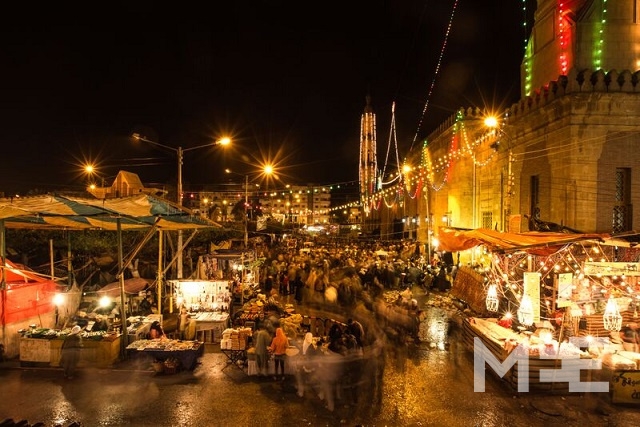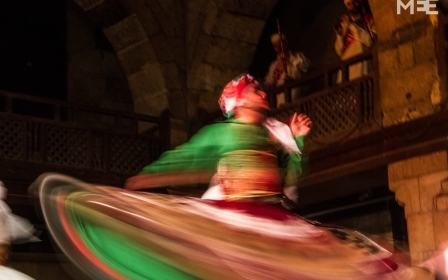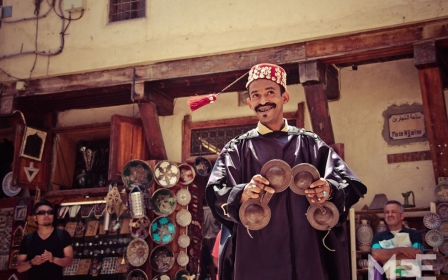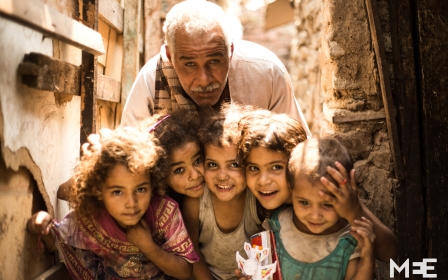The big - and the small - mawlids of Egypt

The mosque is covered with small lights. Loud religious songs play from speakers in every corner as circles of worshippers whirl around, repeating the word madad. There are simple tents in the streets and alleys around the mosque, full of people sleeping, eating, gathering and chatting. Street vendors call out to passersby to buy fake jewelry and delicious desserts. Children wait in lines for their turn to get on the swing. It's just a typical Egyptian Sufi mawlid.
The Arabic word mawlid means simply “anniversary” - the anniversary of a Muslim wali, a saint of sorts, one who serves as a meditator and intercessor in front of God. Mawlids are festivals, commemorated on the anniversary of a saint’s death or, as Sufi generally believe, the day a saint was born for the heavens.
The tradition of mawlids began in the days of the Fatimid Caliphates who ruled Egypt during the 10th and 11th centuries, and has stayed strong until now as the popularity of Sufism in Egyptian society has remained steady. More than 50 mawlids - almost one for every week of the year - are now held in even some of the most remote parts of country.
The celebrations always take place around a mosque which usually has the same name as the wali being celebrated. Sufi followers spend their time in the mawlid in big circles called al-hadra in which they listen to religious songs and whirl around while being rapt in spiritual revelations. Some just circle the shrine of the wali, asking for blessings.
Members of the Prophet’s family are among those who are venerated as saints - including Imam al-Hussein, the grandson of the Prophet Muhammad, whose tomb lies directly in a mosque named after him in Cairo.
In fact, most of the saints whose mawlids are celebrated in Egypt aren’t Egyptians at all. Al-Sayed al-Badawi - a great medieval Sufi master and founder of an important mystical order called al-Tarika al-Ahmedia - came from Morocco and settled down in the city of Tanta, 94km north of Cairo. He died there and was buried in a shrine in a mosque named after him in the city centre. More than a million Egyptians celebrate him at a mawlid each year.
Mohamed bin Mawly, a 41-year-old preacher working for the Ministry of Endowment, told Middle East Eye that more than 15 million Egyptians participate in mawlids each year and most are not members of Sufi orders.
For many poor villages in Egypt, the mawlid serves less as a spiritual observance and more as a fete for the whole village, giving a community the opportunity to gather together. In some small villages, a shrine may be left alone for quite some time before celebrants encircle it, while in larger, more popular mawlids, it can be a serious struggle to get close, as thousands gather.
The reasons the actual members of the Sufi orders attend mawlids are different of course. Ahmed Gebali, a 33-year-old farmer from the south of Egypt who is also a member of al-Tarika al-Ahmedia told MEE: “The days of mawlids are blessed days, so we have to enhance this opportunity, to get closer to Allah and ask his blessed saints 'Awliaa al-Salheen' to intercede for sins to be forgiven.”
On the other hand, there are those who oppose the whole idea of mawlids, and think of them as an act of heresy that goes against the true soul of Islam. Among those critics is Hamed Rohem, an imam of one of Cairo’s famous mosques.
“One of the things that distinguishes Islam from other religions is that there is nothing between the worshipper and Allah," Rohem said. "You don’t have to go anybody in order to communicate and ask Allah something - the whole idea of an intercessor, whoever he is, doesn’t relate to Islam at all."
Between the followers of the Sufi orders, those who oppose the idea of the mawlids, and those who just attend mawlids socially, the Sufi mawlids of Egypt remain a lasting feature of Egyptian society.
New MEE newsletter: Jerusalem Dispatch
Sign up to get the latest insights and analysis on Israel-Palestine, alongside Turkey Unpacked and other MEE newsletters
Middle East Eye delivers independent and unrivalled coverage and analysis of the Middle East, North Africa and beyond. To learn more about republishing this content and the associated fees, please fill out this form. More about MEE can be found here.




